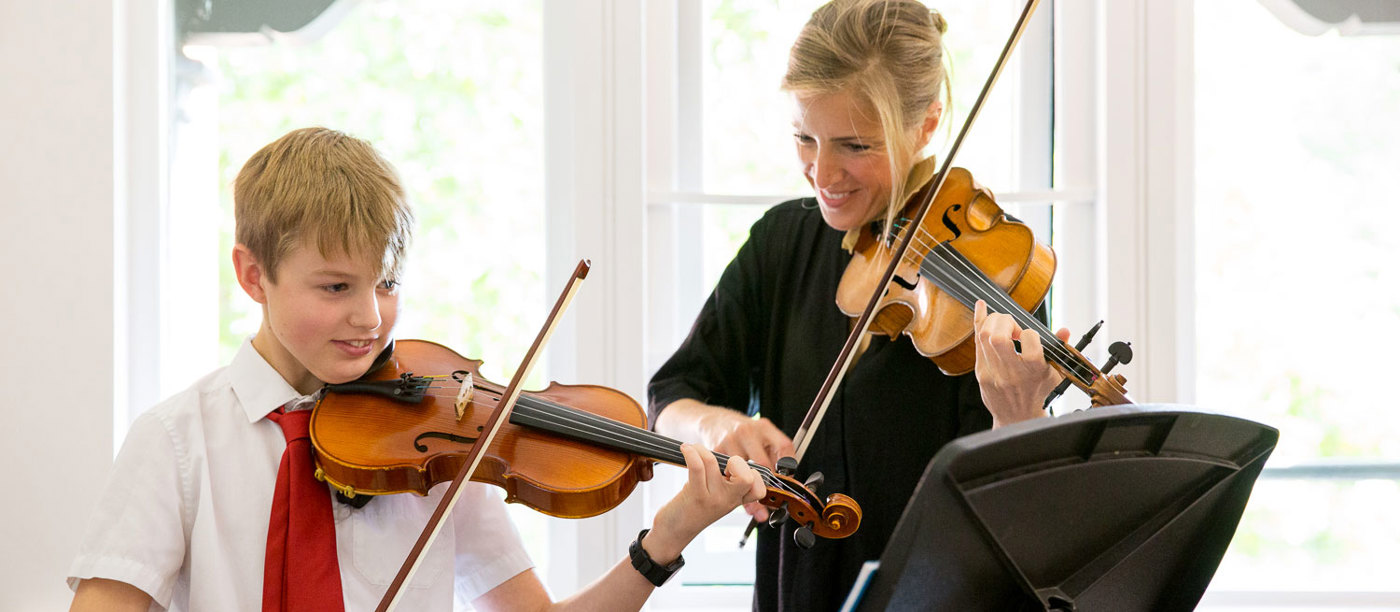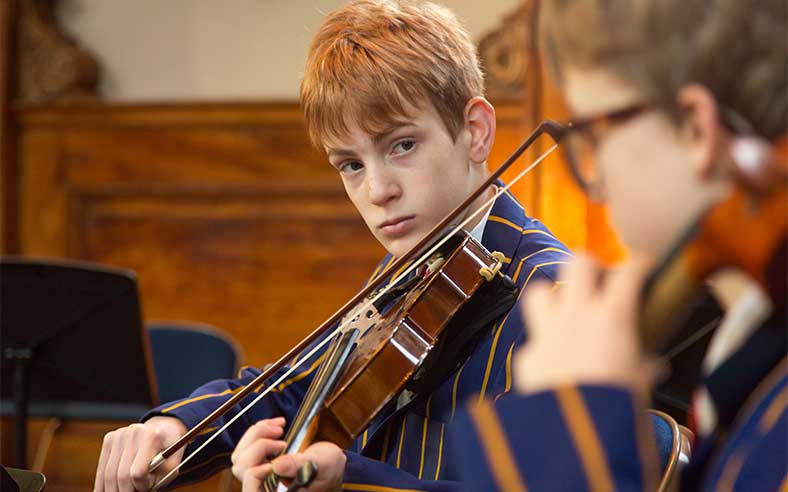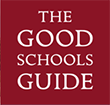School Life

Music

Instrumental lessons
All boys learn the piano and one other orchestral instrument, with a 30-minute lesson on each per week as part of the standard curriculum. Great care is taken over finding the right instrument for each boy when he arrives at the school, with the opportunity to have a trial period on an instrument before committing to it, and ongoing communication with instrumental teachers to ensure that progress is as it should be.
Pupils take instrumental exams when they have reached an appropriate level. These provide useful goals, though we do not see the simple progression through exam grades as a reliable indication of all-round musical development. Just as important is the opportunity to explore the wider possibilities of the instrument and the repertoire associated with it.
Practice
Practice is the key to instrumental success. All boys have supervised scheduled practice on each instrument every day, although as they reach the higher levels they are encouraged to make time for additional practice of their own. This emphasis on supervised practice gives boys an opportunity to develop skills of self-appraisal and self-discipline. They are taught and regularly reminded how to practise effectively, with support from the visiting instrumental teachers.

Orchestras and ensembles
Ensembles are an essential way of developing skills of teamwork and musicianship within a group, as well as being an additional chance for pupils to develop their instrumental skills. Years 5-8 all play in one of the two school orchestras, rehearsing for 40 minutes on Saturday mornings (when Year 4 are usually at home). In addition, every pupil is allocated a smaller ensemble which rehearses for 40 minutes on a Wednesday, each supervised by a member of staff. These ensembles are tailored specifically to the instruments available in order that every pupil be fully involved and challenged as a musician.

Higher up the school, the aim is to form more conventional groups (string quartets, wind quintets, piano trios etc.) in order to give pupils the chance to explore existing repertoire in that genre, though music is also specially arranged to cater for the instruments available. Lower down the school the groups are formed more by ability, in order to give each pupil appropriate experience of ensemble playing from day one. Boys who arrive at the school with no prior instrumental experience are given the opportunity to explore rhythm and simple melodic composition through group work with percussion instruments, coordinated by the Director of Music, to enhance the work covered in academic lessons.
Instrumental Concerts
Performance is a vital aspect of musicianship and there is a termly school concert in which the music that has been rehearsed during the term is presented to parents and other supporters. In addition, there are regular recitals for solo and smaller ensembles given in school; older pupils are encouraged to organise these events themselves and in recent years have successfully put together several charity recitals, raising money for organisations chosen by pupils, including Mind, Mary’s Meals and the Gaza Crisis Appeal.

Preparation for exams and auditions is supported by informal recitals during the school day and regular performance slots in assembly. Once a year, we join forces with St Paul’s Cathedral School and Westminster Cathedral Choir School for the London Choir Schools’ Joint Orchestral Day – a chance to explore music with new people, on a larger scale, in a combined orchestra, concert band and string ensemble.
Visiting recitals and workshops
Pupils are regularly given the chance to hear other performances: recitals are given in school by a range of visiting artists each year who often offer workshop opportunities for pupils. Recent events have included a baroque performance workshop and the inaugural recital for the new school harpsichord by James O’Donnell and Margaret Faultless, a jazz workshop and concert by Chris Garrick and David Gordon, a workshop with renowned pianist Gabriela Montero, a masterclass and performance by The Piano Brothers, and a recital by Retorica violin duo. The school’s location in the heart of London means that several world class concert venues are within easy reach, and pupils enjoy occasional trips to concerts outside school.
Outreach
Pupils also have opportunities to take their instrumental music beyond the school to benefit others; groups have performed in local schools, hospices and nursing homes, giving them a chance to develop their awareness of the broader community and interact with people in different circumstances.
Discover more about life as a chorister








